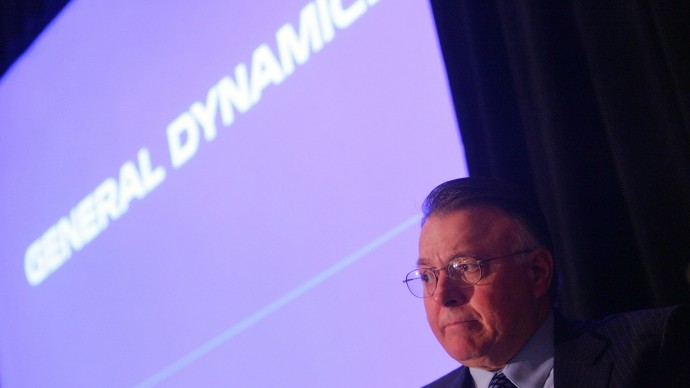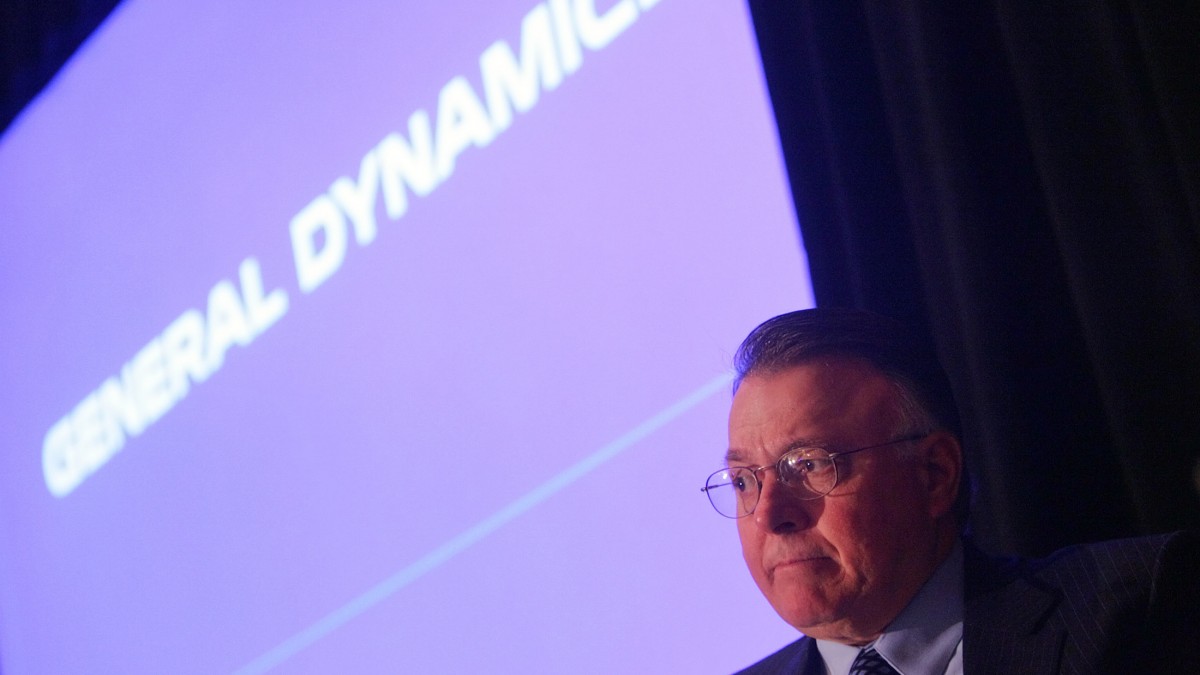
(NEW YORK) MintPress – In his Farewell Address to the Nation on Jan. 17, 1961, President of the United States and former General of the Army Dwight D. Eisenhower introduced the term military-industrial complex, advising the American people that although a vital military establishment is needed to keep the peace, “The total influence — economic, political, even spiritual — is felt in every city, every statehouse, every office of the federal government.
“We must not fail to comprehend its grave implications. Our toil, resources and livelihood are all involved; so is the very structure of our society,” he warned.
“In the councils of government, we must guard against the acquisition of unwarranted influence, whether sought or unsought, by the military-industrial complex. The potential for the disastrous rise of misplaced power exists, and will persist.”
Fifty years later, Eisenhower’s ominous words have proved prescient. In fact, according to American historian and biographer Geoffrey Perret, in one draft of the speech the phrase was “military-industrial-congressional complex,” indicating the essential role that the U.S. Congress plays in the propagation of the military industry, but the word “congressional” was dropped from the final version to appease then-elected officials.
Today, the relationship between Congress and defense contractors is indeed a cozy one. Take just one case. More than 2,000 M-1 Abrams tanks are sitting in a parking lot in Herlong, Calif., where General Dynamics would like to refurbish them to reap huge profits.
But the Army doesn’t want refurbished tanks. Chief of staff General Ray Odierno told Congress earlier this year that the U.S. has more than enough combat tanks.
If the Pentagon holds off repairing, refurbishing or making new tanks for three years until new technologies are developed, he said, it can save taxpayers as much as $3 billion in labor costs by closing down the General Dynamics plant in Lima, Ohio.
That makes sense to Travis Sharp, a fellow at the defense think tank Center for a New American Security. “When a relatively conservative institution like the U.S. military, which doesn’t like to take risks because risks get people killed, says it has enough tanks, I think generally civilians should be inclined to believe them,” he told CNN.
Apparently, though, Congress has another agenda. So far, 173 House Democrats and Republicans have signed a letter urging Defense Secretary Leon Panetta to support their decision to produce more unwanted tanks, claiming that if the Army stops tank production and repair it would hurt the nation’s economy.
“I think there are better things they could be doing with that money,” asserted Sharp, “but the fact that the military is having such a hard time getting this relatively small amount of money to be saved is an indication of the huge uphill fight the military faces when it comes to Congress. Congress is going to fight tooth and nail to protect defense investments.”
Bipartisan effort
Leading the charge in the General Dynamics controversy is Rep. Buck McKeon (R-Calif.), chairman of the House Armed Services Committee.
“The Army has a job to do and we have a job to do. And they have tough choices because they’ve been having their budget cut, with the first cuts, half a trillion dollars, and now sequestration on top of that,’ he said recently.
“But we have to look long range. If someone could guarantee us that we’ll never need tanks in the future, that would be good. I don’t see that guarantee.”
For the record, according to the website Defeat McKeon, the congressman is currently the target of
a House ethics investigation involving his receipt of a VIP mortgage from now-defunct Countrywide Financial, and he is a central supporter of legislation that would launch thousands of military drones above American soil.
Rep. Silvestre Reyes (D-Texas), who was chairman of the House Permanent Select Committee on Intelligence between 2007 and 2011, agreed with McKeon. “We don’t want to play Russian roulette with the national security of this country,” he maintained.
But there is more to the rare bipartisan harmony than that. The Center for Public Integrity conducted an investigation into the amount of money spent by General Dynamics after the Army suggested postponing work on the tanks, tracking the cash and the lobbyists hired.
“What we found was a direct spike in the giving,” revealed the center’s Aaron Mehta. “It’s true in every aspect of politics, but especially in the defense industry, that it is almost impossible to separate out the money that is going into elections from the special interests.”
In fact, according to CNN, General Dynamics has given McKeon $56,000 in campaign contributions since 2009 and Reyes $64,000 since 2001.
“Our money is bipartisan,” said company spokesman Kendall Pease.
Paying big bucks for votes
General Dynamics is, in fact, one of five leading defense contractors that upped their spending on lobbying by a combined 11.5 percent in the first quarter of 2012 compared to the same quarter in 2011, a review of lobbying disclosure forms by Defense News found.
The increase brought lobbying investment for Lockheed Martin, Boeing, General Dynamics, Raytheon and Northrop Grumman to a combined total of $15.9 million for the quarter ending March 31.
The number represented a new combined high in the four years that all five companies have been filing disclosures, which are required under the Open Government Act of 2007.
“The lobbying spike is partially attributable to the election year,” said Loren Thompson, an industry consultant and chief operating officer at the Virginia-based Lexington Institute. “Election years often see a surge in lobbying activity as companies try to posture themselves to be supportive of key legislators.”
Northrop Grumman led the way, increasing its spending by 51 percent compared to 2011, followed by Lockheed Martin, which increased spending by 25 percent.
Northrop “moved their headquarters out here so their CEO is much more focused on Washington than he was before,” one Washington lobbyist who has worked with large defense companies told Defense News.
“Boeing continually advocates on behalf of its businesses in both the commercial aviation market and the defense market,” Boeing spokesman Marcellus Rolle wrote in an e-mail to the publication.
“The objective of our lobbying efforts is to strategically and tactically interact with the legislative and executive branches of federal, state and local governments to urge support on issues of interest to Boeing.”
Lockheed also has a variety of interactions with government officials. “With 82 percent of our company’s sales derived from U.S. government customers,” said spokeswoman Jennifer Allen, “we naturally have interactions with virtually every standing committee in the United States Congress who has oversight authority over the budgets and policies of all federal agencies, and by extension, the products and services that Lockheed Martin provides to them.”
“We must never let the weight of this combination endanger our liberties or democratic processes,” said Eisenhower in his 1961 speech.
“Only an alert and knowledgeable citizenry can compel the proper meshing of the huge industrial and military machinery of defense with our peaceful methods and goals so that security and liberty may prosper together.”
Fair warning.


